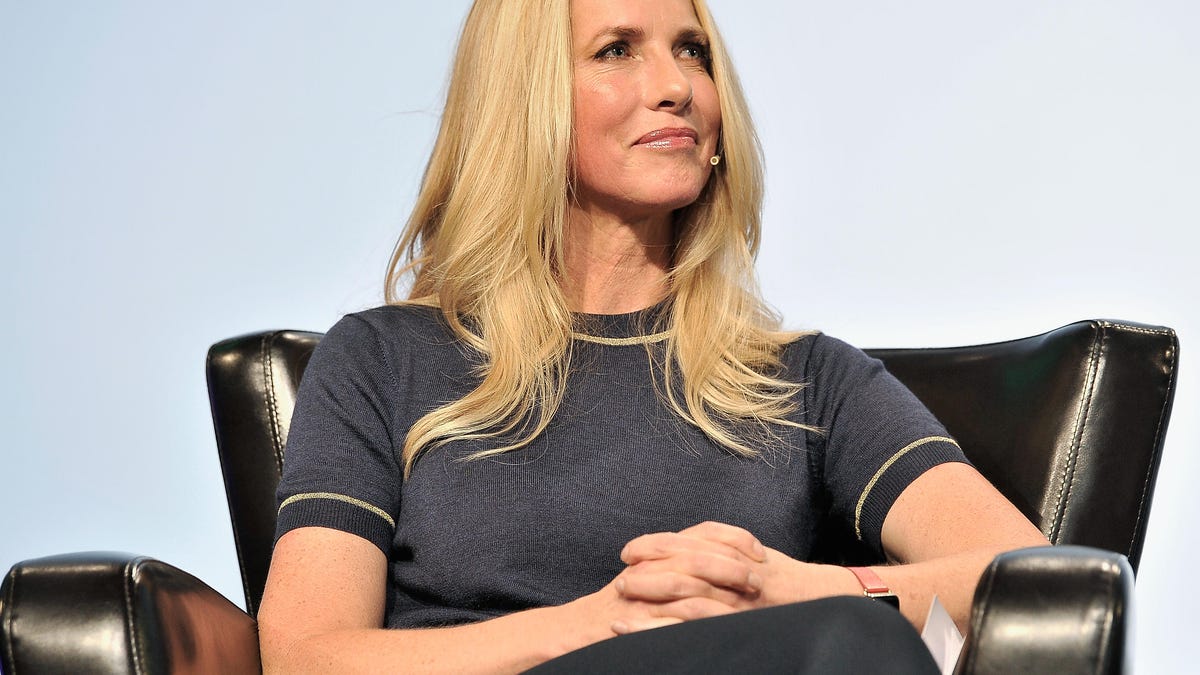Laurene Powell Jobs has quietly invented a new form of philanthropy
Steve Jobs' widow is running what The Washington Post describes as "the most influential product of Silicon Valley that you've never heard of."

Laurene Powell Jobs, widow of Apple co-founder Steve Jobs and founder of the Emerson Collective.
Laurene Powell Jobs is quietly creating a new landscape of philanthropy.
One of the world's richest women, worth an estimated $20 billion, the 54-year-old Powell Jobs is a philanthropist, entrepreneur and president of the Emerson Collective, whose mission includes "removing barriers to opportunity so people can live to their full potential."
In an expansive profile of both Powell Jobs and her philanthropic effort, The Washington Post calls the collective "the most influential product of Silicon Valley that you've never heard of." That's on purpose. Powell Jobs once wrote an essay on the importance of anonymous giving and handed it out to employees.
The Post recounts her impoverished upbringing after the death of her father, her first foray into philanthropy while in high school (a $20 check to the Southern Poverty Law Center), to her meeting Jobs at a lecture at Stanford University in 1989 and their immediate first date afterward.
While the details of Powell Jobs' life are fascinating, they're presented to give a better picture of her what led her to create the Emerson Collective. Her collective, which has political leanings The Post describes as center-left "with a dash of techie libertarianism," focuses on issues such as the environment, gun violence, education reform and immigration reform.
"I'd like us to be a place where great leaders want to come and try to do difficult things," Powell Jobs told The Post. "I think we bring a lot more to the table than money. … If you want to just be a check writer, you'd run out of money and not solve anything."
Some of her recent investments include taking a 20 percent stake in the organization that owns the NBA's Washington Wizards, the NHL's Washington Capitals and the WNBA's Washington Mystics, as well as the Capital One Arena. That purchase came about two months after she and Emerson purchased a majority stake in The Atlantic magazine.
Her 130-employee collective doesn't seem to conform to traditional models of philanthropy, The Post says, assembling a who's-who of practical progressives, including Arne Duncan, education secretary in the Obama administration, Russlynn Ali, assistant education secretary for civil rights in the Obama administration, and Andy Karsner, assistant energy secretary for renewable energy in the George W. Bush administration.
The collective, as The Post describes it, is "equal parts think tank, foundation, venture capital fund, media baron, arts patron and activist hive." The collective invests in private companies not because the goal is to make money but because, she says, Silicon Valley has demonstrated that "amazing entrepreneurs who … are 100 percent aligned with our mission" can help find solutions that might elude a nonprofit.
Because Emerson is formed as a limited liability company rather than a foundation, it has the flexibility to do more than make grants to nonprofit groups. It can support advocacy groups, launch its own activist campaigns and contribute to political organizations.
Powell Jobs' connection to Silicon Valley remains strong, and she frequently takes "tech tours" with Ron Conway, her friend and legendary angel investor. Their forays take them to the "next big things," just as they did with Pinterest, Facebook and Airbnb before they became the big thing.
"What's fascinating is that by listening to all these founders, she has basically put founders at the head of each of the sectors of Emerson Collective, so that she's really funding entrepreneurs inside the collective who want to disrupt their spaces," Conway told The Post. "She wants people to innovate in their sector -- education reform, getting the Dream Act passed. So Emerson has become like an accelerator for causes around social change."
Special Reports: All of CNET's most in-depth features in one easy spot.
It's Complicated: This is dating in the age of apps. Having fun yet? These stories get to the heart of the matter.

